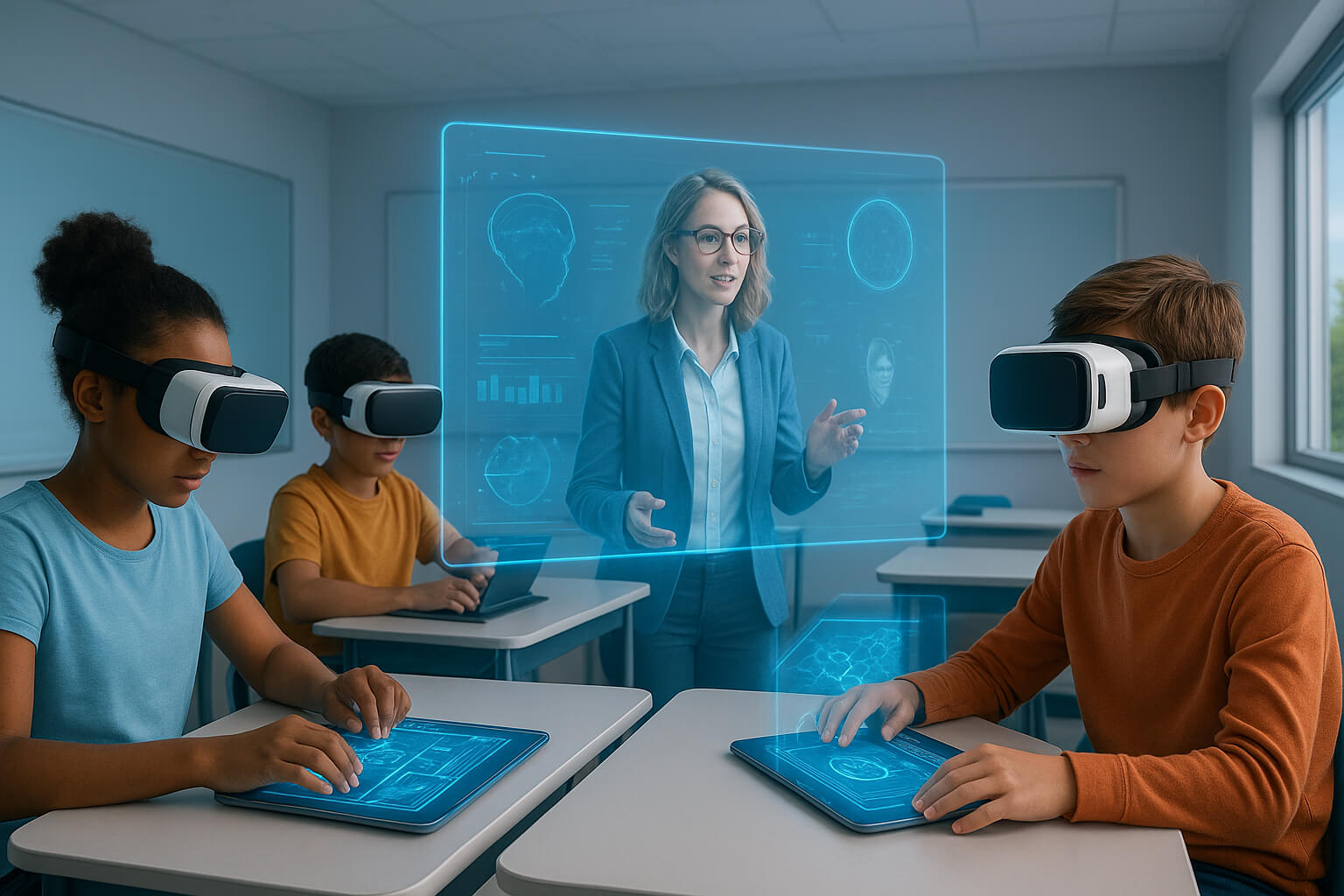The Future of Learning: Innovations in Education

Education is undergoing a radical transformation. Fueled by technological advancements, global challenges, and a shift toward lifelong learning, the way we teach and learn is no longer confined to traditional classrooms. From AI-driven personalized learning to immersive virtual reality experiences, the future of education is designed to be more flexible, inclusive, and engaging, empowering every learner to achieve their full potential.
1. Personalized Learning Powered by AI
- Artificial Intelligence is revolutionizing the way we approach education. AI systems analyze student data to create customized learning paths, adapt lessons to individual needs, and provide real-time feedback. Adaptive learning platforms are already helping educators deliver personalized lessons, ensuring that no student is left behind, regardless of their learning pace or style.
- For example, just as musicians can use customized learning paths for instruments (RocketPages: How to Learn Guitar for Free), future classrooms will employ AI to tailor lessons in subjects like math, science, and languages, ensuring that each student’s needs are met, all while enhancing engagement and retention.
- External Insight: The UNESCO’s Future of Education Report stresses that personalized learning will be essential in reducing educational disparities worldwide.
2. Gamification and Engagement-Driven Learning
- Gamification—integrating game-like elements into the learning process—is reshaping education. By using leaderboards, digital badges, and interactive simulations, education is becoming more motivational and rewarding. This approach makes learning fun and encourages students to stay engaged.
- In the music industry, musicians already enjoy gamified platforms that track their progress and reward them for achieving goals (RocketPages: Understanding Sample Packs). Similarly, schools are using game mechanics to make STEM subjects more exciting. Imagine solving math problems as if you're on an adventure or unlocking achievements as you progress through science quizzes.
- External Insight: A Harvard Graduate School of Education study shows that gamification not only increases motivation but also improves long-term knowledge retention.
3. Virtual & Augmented Reality Classrooms
- The potential of Virtual Reality (VR) and Augmented Reality (AR) in education is nothing short of transformative. Imagine learning history by virtually walking through Ancient Rome or exploring the human body in 3D. These immersive technologies offer experiential learning opportunities that go far beyond traditional textbooks.
- Much like how musicians now collaborate using digital tools and immersive environments (RocketPages: Top 10 Royalty-Free Music Platforms), students in the future will be able to interact with subjects in a much more hands-on and engaging way, breaking the boundaries of geography and traditional learning methods.
- External Insight: The World Economic Forum highlights VR/AR as key drivers of the Fourth Industrial Revolution in education, helping students learn through rich, interactive experiences.
4. Lifelong Learning and Micro-Credentials
- In the future, education will be about continuous skill-building rather than a one-time degree. Micro-credentials, short courses, and online certifications will provide learners with flexible, accessible, and affordable ways to upskill and reskill throughout their careers. Whether you're learning coding, digital marketing, or a new language, educational platforms will offer bite-sized learning modules that fit into busy lifestyles.
- This shift mirrors the rise of independent musicians learning through online communities and free resources (RocketPages: Why People Still Download Music in the Age of Spotify). Similarly, education will evolve to allow individuals to learn at their own pace, choosing what skills to develop without committing to a traditional four-year degree.
- External Insight: The OECD Education and Skills 2030 framework emphasizes that lifelong learning will be essential to success in an increasingly fast-paced world.
5. The Human Touch: Hybrid Models
- While technology will play a central role in education, human connection remains irreplaceable. Hybrid models—combining online learning with in-person mentorship and interaction—will be the future. Teachers will evolve into facilitators and coaches, guiding students through personalized learning journeys. This model ensures that emotional intelligence, social skills, and critical thinking remain central to the educational experience.
- This mirrors the evolution of the music world, where digital platforms coexist with live performances to enhance the overall experience. The best education models of the future will integrate both the power of technology and the irreplaceable value of human connection.
- External Insight: Research from the Brookings Institution confirms that hybrid learning models provide equity by blending the accessibility of digital platforms with the essential social dynamics of in-person interaction.
Final Thoughts
The future of learning is about choice, flexibility, and engagement. As education merges technology with human-centered teaching, it will empower students to thrive in a rapidly changing world. Just as the music industry has been reshaped by digital innovation, education is entering its own renaissance—one where every learner can shape their own journey and continuously grow in an ever-evolving landscape.
